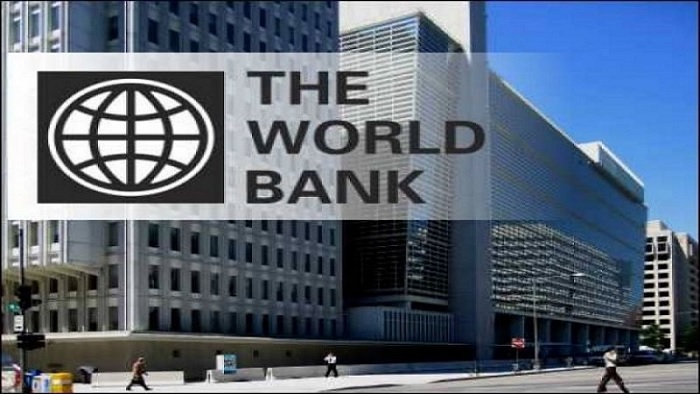
BD to achieve 1.6pc GDP growth this fiscal: WB

Bangladesh's GDP growth will be 1.6 percent in the running 2020-21 fiscal,World Bank on Thursday forecast inits twice-a-year-regional update.
It also said thatBangladesh's GDP growth is estimated to be two percent in the 2019-20 fiscal.
Released on Thursday, the latest South Asia Economic Focus forecasts 3.4 percent GDP growth in the next 2021-22 fiscal, reports UNB.
South Asia is set to plunge into its worst-ever recession as the devastating impacts of COVID-19 on the region's economies linger on, taking a disproportionate toll on informal workers and pushing millions of South Asians into extreme poverty, it said.
The latest South Asia Economic Focus forecasts a sharper than expected economic slump across the region, with regional growth expected to contract by 7.7 percent in 2020, after topping 6 percent annually in the past five years.
In previous recessions, falling investment and exports led the downturn. This time is different as private consumption, traditionally the backbone of demand in South Asia and a core indicator of economic welfare, will decline by more than 10 percent, further spiking poverty rates. A decline in remittances is also expected to accelerate loss of livelihoods for the poorest in some countries.
Hartwig Schafer, World Bank Vice President for the South Asia Region, said thecollapse of South Asian economies during COVID-19 has been more brutal than anticipated, worst of all for small businesses and informal workers who suffer sudden job losses and vanishing wages.
"Immediate relief has dulled the impacts of the pandemic, but governments need to address the deep-seated vulnerabilities of their informal sectors through smart policies and allocate their scarce resources wisely."
Mercy Tembon, World Bank Country Director for Bangladesh and Bhutan, said theglobal economic downturn will impact Bangladesh's economy. However, the policies that the government has undertaken to mitigate the impacts are in the right direction.
"For a resilient recovery, the government needs to continue to safeguard its fiscal and debt positions, build financial sector health, protect the poor and vulnerable and create a conducive environment for private sector development and job creation."
Three-quarters of all workers in South Asia depend on informal employment, especially in hospitality, retail trade, and transport-sectors most affected by containment measures.
The report warns that informal workers and firms have little room to cope with unexpected shocks of the magnitude of COVID-19.
While the poor have faced rising food prices and suffered severely, the COVID-19 crisis has dealt a further blow to many informal workers in the middle of the income distribution who experienced sharp drops in earnings.
Few informal workers are covered by social insurance, have savings or access to finance.
The report urges governments to design universal social protection as well as policies that support greater productivity, skills development, and human capital. In that effort, securing international and domestic financing will help governments fund crucial programs to speed up recovery.
In the long-term, digital technologies can play an essential role in creating new opportunities for informal workers, making South Asia more competitive and better integrated into markets-if countries improve digital access and support workers to take advantage of online platforms.
"COVID-19 will profoundly transform South Asia for years to come and leave lasting scars in its economies. But there is a silver lining toward resilient recovery: the pandemic could spur innovations that improve South Asia's future participation in global value chains, as its comparative advantage in tech services and niche tourism will likely be in higher demand as the global economy becomes more digital," said Hans Timmer, World Bank Chief Economist for the South Asia Region.
Editor & Publisher: S. M. Mesbah Uddin
Published by the Editor from House-45,
Road-3, Section-12, Pallabi, Mirpur
Dhaka-1216, Bangladesh
Call: +01713180024 & 0167 538 3357
News & Commercial Office :
Phone: 096 9612 7234 & 096 1175 5298
e-mail: financialpostbd@gmail.com
HAC & Marketing (Advertisement)
Call: 01616 521 297
e-mail: tdfpad@gmail.com